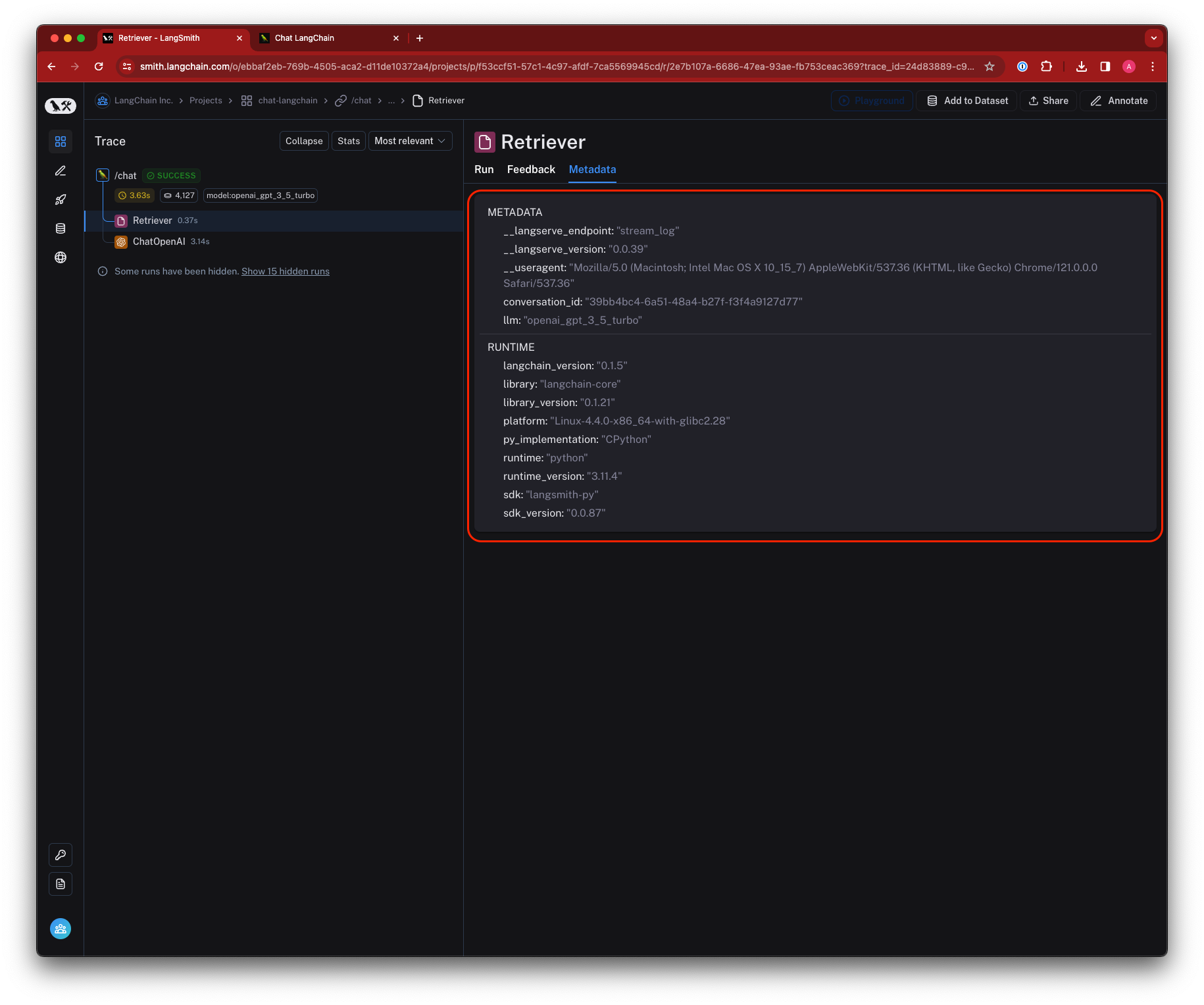Tracing
This conceptual guide covers topics that are important to understand when logging traces to LangSmith. A Trace is essentially a series of steps that your application takes to go from input to output. Each of these individual steps is represented by a Run. A Project is simply a collection of traces. The following diagram displays these concepts in the context of a simple RAG app, which retrieves documents from an index and generates an answer.
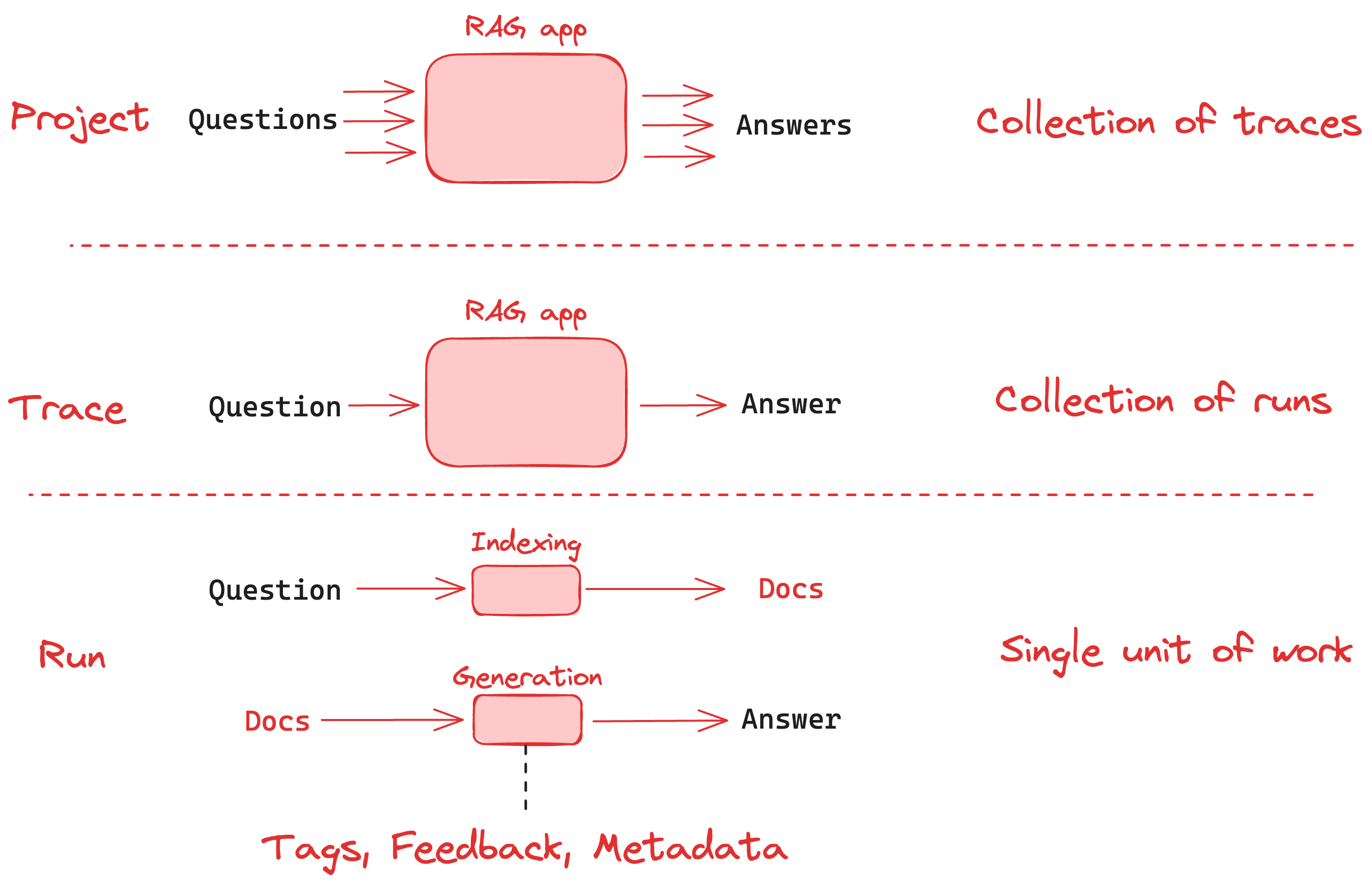
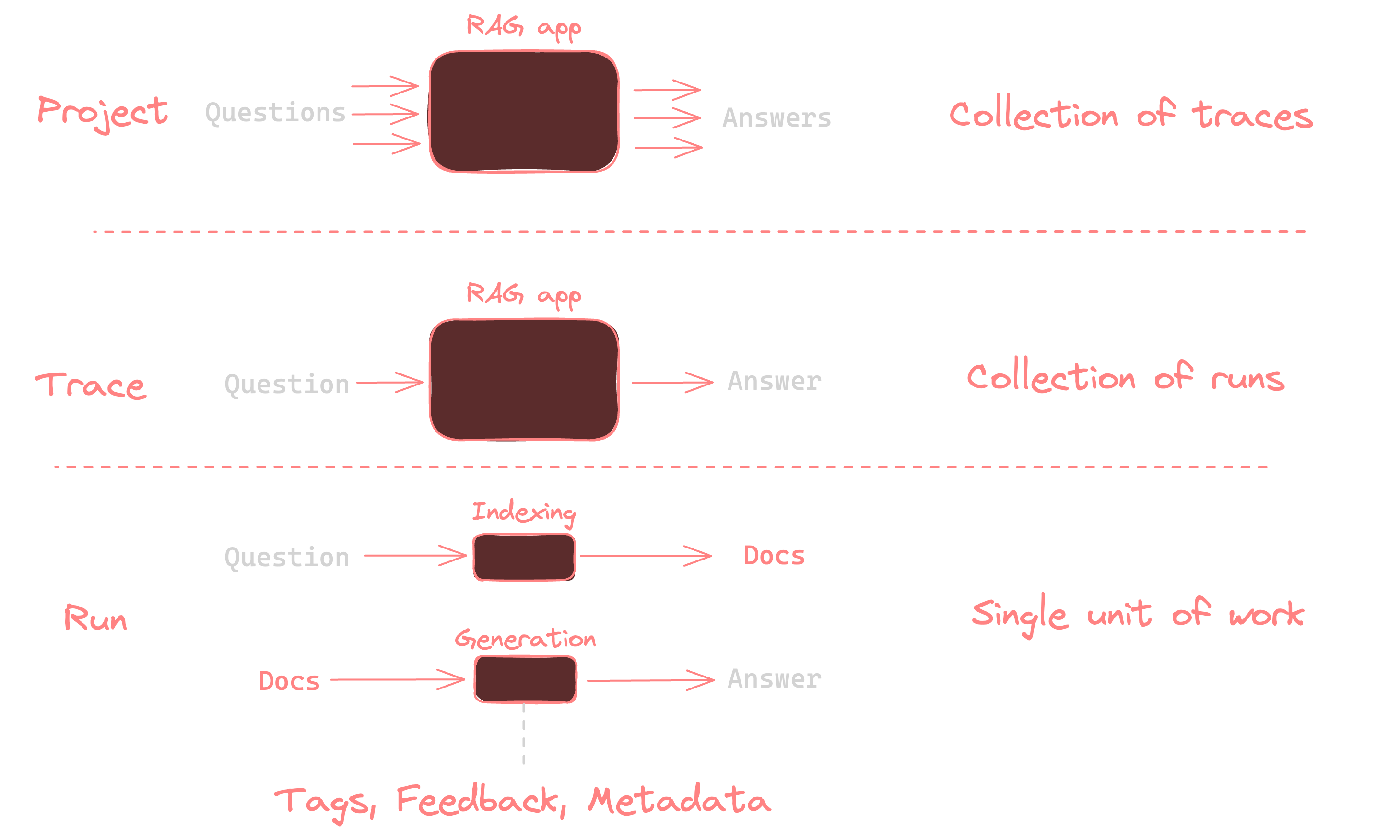
Runs
A Run is a span representing a single unit of work or operation within your LLM application. This could be anything from single call to an LLM or chain, to a prompt formatting call, to a runnable lambda invocation. If you are familiar with OpenTelemetry, you can think of a run as a span.
To learn more about how runs are stored in the application, see this reference guide.
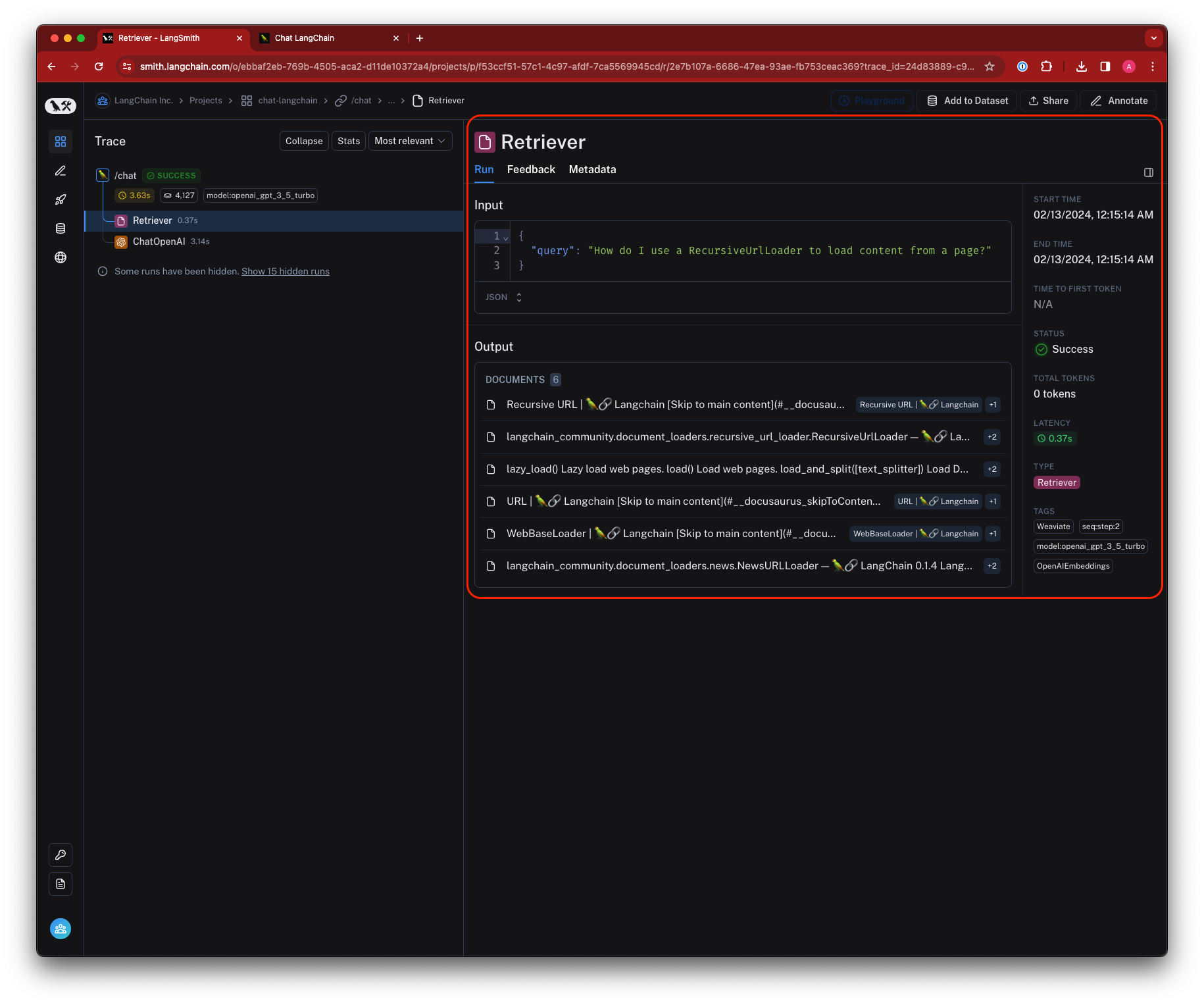
Traces
A Trace is a collection of runs that are related to a single operation. For example, if you have a user request that triggers a chain, and that chain makes a call to an LLM, then to an output parser, and so on, all of these runs would be part of the same trace. If you are familiar with OpenTelemetry, you can think of a LangSmith trace as a collection of spans. Runs are bound to a trace by a unique trace ID.
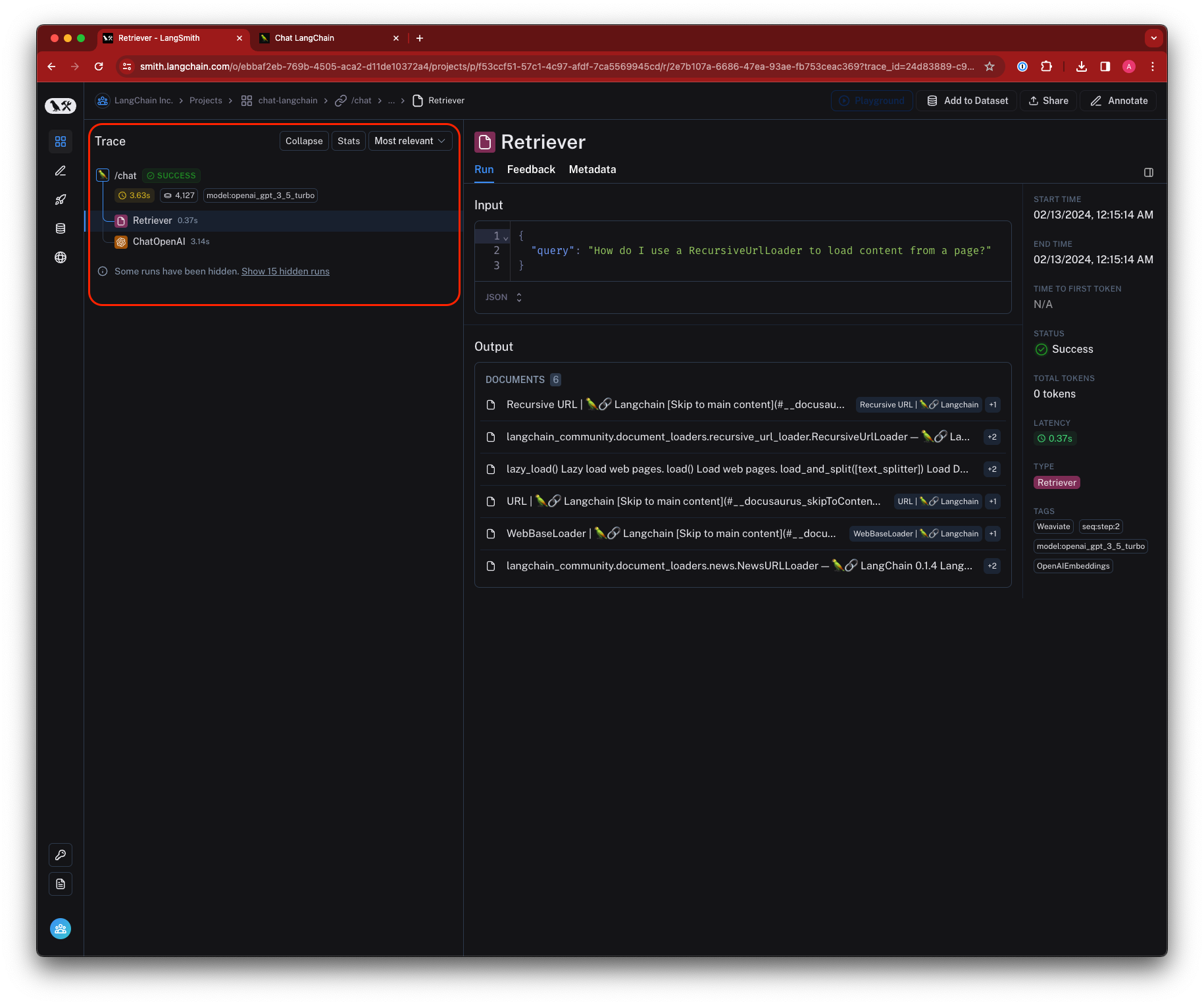
Projects
A Project is a collection of traces. You can think of a project as a container for all the traces that are related to a single application or service. You can have multiple projects, and each project can have multiple traces.
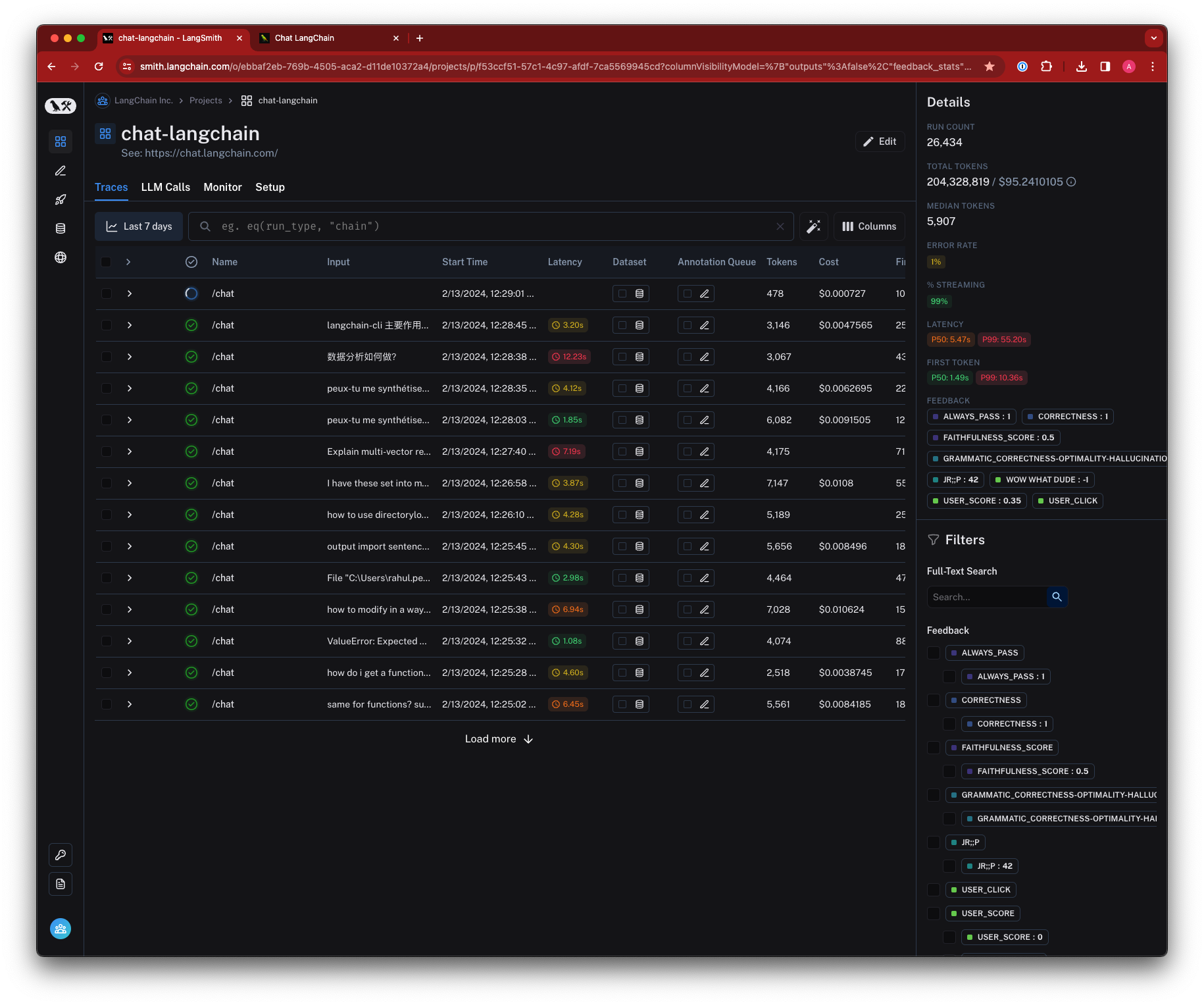
Feedback
Feedback allows you to score an individual run based on certain criteria.
Each feedback entry consists of a feedback tag and feedback score, and is bound to a run by a unique run ID.
Feedback can currently be continuous or discrete (categorical), and you can reuse feedback tags across different runs within an organization.
Collecting feedback on runs can be done in a number of ways:
- Sent up along with a trace from the LLM application
- Generated by a user in the app inline or in an annotation queue
- Generated by an automatic evaluator during offline evaluation
- Generated by an online evaluator
To learn more about how feedback is stored in the application, see this reference guide.
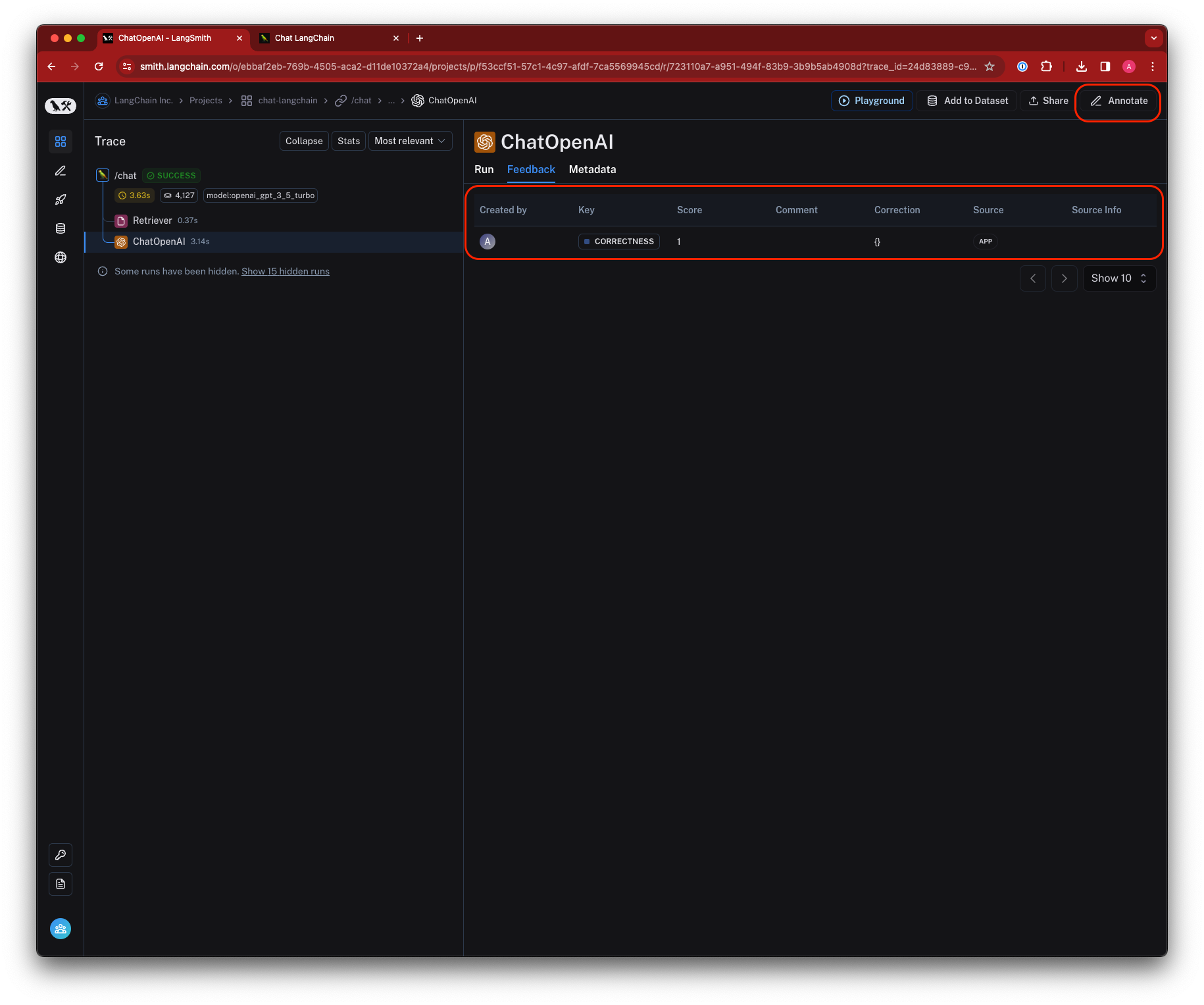
Tags
Tags are collections of strings that can be attached to runs. They are used to categorize runs and make it easier to search for them in the LangSmith UI. Tags can be used to filter runs in the LangSmith UI, and can be used to group runs together for analysis. Learn how to attach tags to your traces
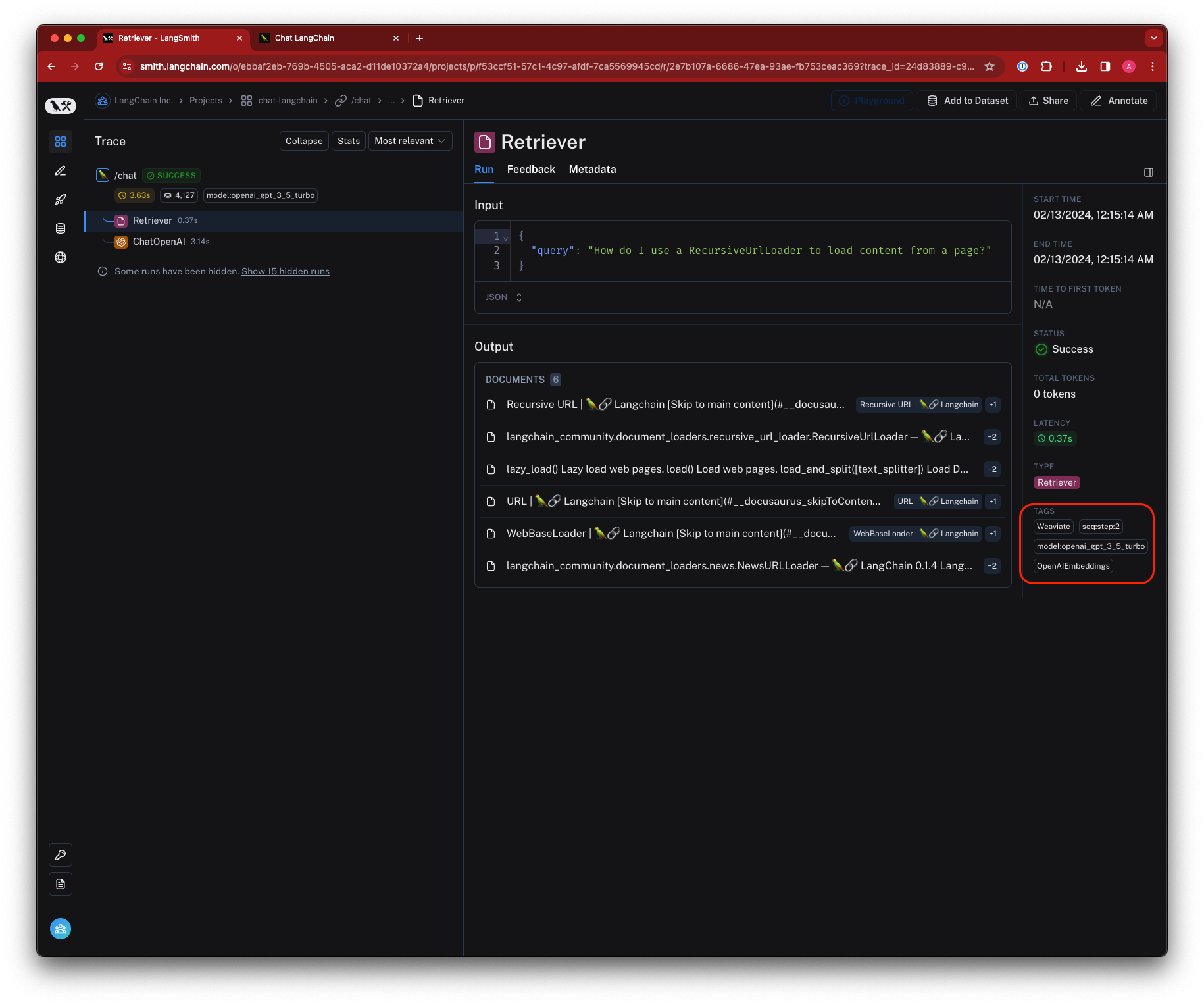
Metadata
Metadata is a collection of key-value pairs that can be attached to runs. Metadata can be used to store additional information about a run, such as the version of the application that generated the run, the environment in which the run was generated, or any other information that you want to associate with a run.
Similar to tags, you can use metadata to filter runs in the LangSmith UI, and can be used to group runs together for analysis. Learn how to add metadata to your traces
